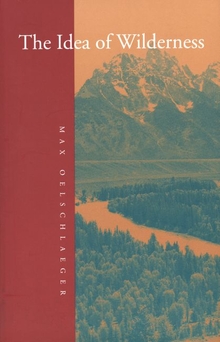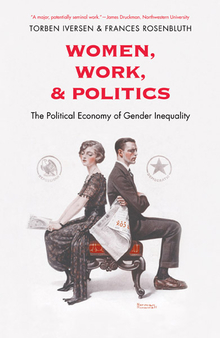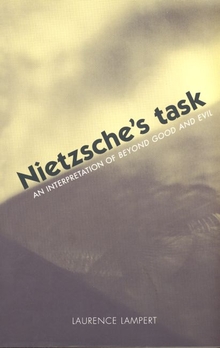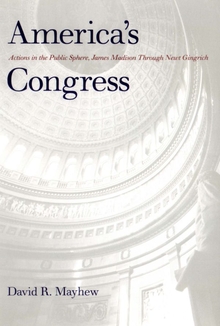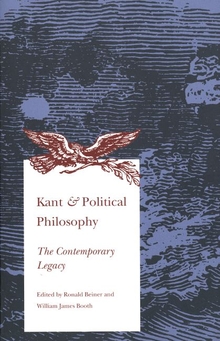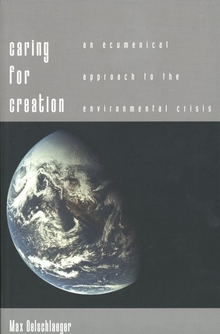The Idea of Wilderness
WARNING
You are viewing an older version of the Yalebooks website. Please visit out new website with more updated information and a better user experience: https://www.yalebooks.com
From Prehistory to the Age of Ecology
Max Oelschlaeger
How has the concept of wild nature changed over the millennia? And what have been the environmental consequences? In this broad-ranging book Max Oelschlaeger argues that the idea of wilderness has reflected the evolving character of human existence from Paleolithic times to the present day. An intellectual history, it draws together evidence from philosophy, anthropology, theology, literature, ecology, cultural geography, and archaeology to provide a new scientifically and philosophically informed understanding of humankind’s relationship to nature.
Oelschlaeger begins by examining the culture of prehistoric hunter-gatherers, whose totems symbolized the idea of organic unity between humankind and wild nature, and idea that the author believes is essential to any attempt to define human potential. He next traces how the transformation of these hunter-gatherers into farmers led to a new awareness of distinctions between humankind and nature, and how Hellenism and Judeo-Christianity later introduced the unprecedented concept that nature was valueless until humanized. Oelschlaeger discusses the concept of wilderness in relation to the rise of classical science and modernism, and shows that opposition to “modernism” arose almost immediately from scientific, literary, and philosophical communities. He provides new and, in some cases, revisionist studies of the seminal American figures Thoreau, Muir, and Leopold, and he gives fresh readings of America’s two prodigious wilderness poets Robinson Jeffers and Gary Snyder. He concludes with a searching look at the relationship of evolutionary thought to our postmodern effort to reconceptualize ourselves as civilized beings who remain, in some ways, natural animals.
"The Idea of Wilderness . . . shows how fresh and vital is the potential for a history of ideas when undertaken with finesse and erudition, aimed at exploration of the choices and dilemmas of the human relationship to nature. Oelschlaeger's work is a model of integration in an over-departmentalized world. From Paleolithic caves to deep ecology, from Sumeria, the Old Testament, the Christian Middle Ages and modern thought to the best poetic insight, it is a long trail. In this forest tangle Oelschlaeger is an excellent guide. He begins his study of humans and nature in our deep Paleolithic past—no mean task for a modern philosopher—and pursues our wild nature and historical experience into the present ecological dilemmas, a daring yet sensitive enterprise. The heart of human nature is our wildness and the nature of our environmental crisis is reason's neglect of that reality. Here at last is the best kind of philosophic inquiry, rooted in prehistory and culminating in recent poetry and ideas. Oelschlaeger's expedition begins where few philosophers tread, in our primal past, and leads us not up but into the best poetic vision of the wilderness and the human condition. It is an original and valuable foray into the meaning of the wild in the immense landscape of the Western tradition."—Paul Shepard, Pitzer College
"The Idea of Wilderness is a comprehensive new look at the wilderness concept in the spirit of Roderick Nash's Wilderness and the American Mind, but on the scale of Traces on the Rhodian Shore by Clarence Glacken, to whom the book is dedicated. It includes detailed and insightful new discussions of the thought of Thoreau, Muir, and Leopold, as well as a chapter analyzing the poetry of Jeffers and Snyder. Although historical in his approach, Oelschlaeger is primarily concerned with developing and defending a wilderness concept that can survive the transition from modern to postmodern society that is now taking place. The book should be required reading for scholars and environmentalists interested in the wilderness concept and concerned about wilderness preservation."—Eugene Hargrove, Editor, Environmental Ethics
"The Idea of Wilderness is a courageous book and a magnificent achievement. Oelschlaeger ranges over the entire history (and prehistory) of human kind. He also ranges over a wide spectrum of scholarship, from mythography to quantum theory. And he unabashedly espouses a new 'post-modern primitivism.'"—J. Baird Callicott, Professor of Philosophy, University of Wisconsin, Stevens Point
"In environmental literature, there is a great deal of redundancy. Many authors seem content to simply re-phrase observations that have been made repeatedly over the years. Therefore, encountering a work as original as Oelschlaeger's is a singular event. This is a stunning work, and one which sets a new standard in environmental writing. Even though the scope is very large, the author invariably provides details to match: this is a full repast, not a light lunch. Because of its wealth of real substance, the book serves as an excellent introduction to the entire range of environmental thought. More importantly, the author is willing and able to step beyond, and to reveal the probable trajectory of future thinking. He successfully elaborates an alternative understanding of the human/nature relationship, and indicates a means of transcending the current impasse. This is not only a work of impressive scholarship, but also of inspired imagination."—Neil Evernden, York University, Ontario
"Drawing upon recent anthropological scholarship on Paleolithic culture, and the latest developments in ecological philosophy, Oelschlaeger deftly retraces the philosophic ground in Nash's classic: Wilderness and the American Mind. The result is a radical reappraisal of the significance of the evolutionary/ecological perspective in the West. Insightful interpretations of Thoreau, Muir, Leopold, Jeffers, and Snyder show them to be the leading edge of a major cultural paradigm shift to a postmodern posthistoric primitivism: a Paleolithic consciousness. This book is an absolutely crucial and timely benchmark in ecophilosophic thought and history."—George Sessions, Sierra College
"This is not simply a monograph on a specialized topic. It is a new history of civilization, seen now against the backdrop of a responsibly positive view of human life before the domestication of plants and animals. All histories reflect values, and this one reflects the values that sensitive people are coming to see as the most truly important ones. In this new history the great thinkers of recent times turn out to be Thoreau, Muir, and Leopold. A generation formed by this different understanding of the human condition may yet save the planet."—John B. Cobb, Jr., The Claremont Graduate School
"From the minds of five 'poetic thinkers and thinking poets,' namely, Thoreau, John Muir, Aldo Leopold, Robinson Jeffers, and Gary Snyder, Oelschlaeger . . . brings new dimension to such matters as the origin and uses of the natural world. . . . Joseph Campbell readers should be able to hear, underneath Oelschlaeger's academic style, the faint heartbeat of an older wilderness mythos in his thesis."—Publishers Weekly
"Oelschlaeger writes persuasively on the philosophical and religious underpinnings of various environmental positions. . . . Indispensable."—Outside
"This book is a brave attempt to provide scholarly underpinnings for the counterculture of political ecology. It is broad, non-partisanly and courteously written, interesting, and honest."—Anna Bramwell, The Times Higher Education Supplement
"The Idea of Wilderness is a very difficult book, but well worth the effort. Oelschlaeger has taken on a huge task. He sets out to trace the history of the idea of nature in Western experience."—John C. Miles, Amicus Journal
"Oelschlaeger . . . draws on anthropological scholarship and ecological philosophy as well as the writings of Thoreau, John Muir, Aldo Leopold, Robinson Jeffers, and Gary Snyder. His critique of modernism and its impact on the environment produces a number of revisionist readings."—American Literature
"Oelschlaeger's argument aptly assumes a cross-disciplinary approach in considering patterns of conceptual change, differences between classical and modern ideas of nature, and wilderness philosophy embedded in the writings and ideals of the world's great thinkers, from ecologists to scientists."—Bookwatch
"[Oelschlaeger's] monumental book is an historical survey of man's relationship with nature and, in particular, with his thinking about that relationship. . . . This is a densely absorbing book, rich in ideas and information, which surveys an enormous field in great detail. It extends Nash's pioneering study on Wilderness and the American mind—an historical approach by an historian to a philosophical analysis by a philosopher. It is impossible to do it justice in one reading. Those concerned with environmental issues will find it a wellspring of stimulation."—Bryn Green, RSA Journal
"Thick, rich, and redolent with meaning."—John Davis, Wild Earth
"This history of ideas on the relationship of human society to wild nature surveys the eras from the paleolithic to the postmodern."—Choice
"A well written and carefully produced volume which one reads through with pleasure and edification. . . . Interesting and entertaining."—Timo Airaksinen, Environmental Values
"An intellectually stimulating work that makes a significant contribution to the understanding of our relationship with nature throughout history. . . . The depth and range of coverage will make the book useful as a text on environmental history."—V. N. Kisling, Jr., Archives of Natural History
"The Idea of Wilderness will take its place as a necessary reference. It will be read slowly and ruminatively by anyone who would like to know how we got into our present situation and whether we can possibly redeem it."—Thomas J. Lyon, Forest & Conservation History
"A thought-provoking and stimulating book which the reader will find hard to put down. . . . No geography library should be without a copy."—William W. Easton, Special Libraries Association Bulletin
"This is a comprehensive, highly intellectual history of the development and idea of wilderness, based on the thoughts and literature of philosophy, anthropology, theology, ecology, geography, and archaeology."—Herbert W. Kale II, Ph.D., The Florida Naturalist
"Max Oelschlaeger draws together a vast wealth of references and notes to provide the student of the environment with a most valuable philosophical resource. . . . The concepts of poetry of wilderness and humankind's relationships are stimulatingly explained."—G. Ll. Lucas, Kew Bulletin
“Max Oelschlaeger’s monumental history of the evolution of wilderness in the human mind … [is] a wide-ranging study that encompasses Romanticism, the classical world and prehistory, and deep ecology and the contemporary environmental movement.” - The London Review Bookshop
"The author presents a devastating critique of the modernist outlook on nature represented in science, technology, and economics and offers an important alternative, one on which the fate of the planet may depend."—Donald Worster, Hall Distinguished Professor of American History, University of Kansas
Selected as one of the top 12 books on conservation by Dave Foreman of Earth First
Publication Date: January 27, 1993

